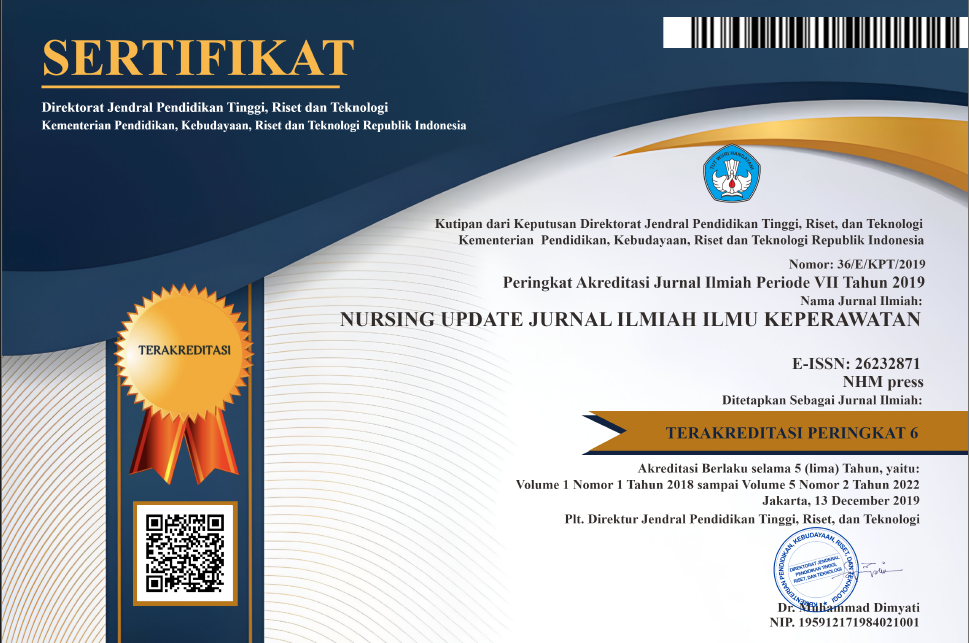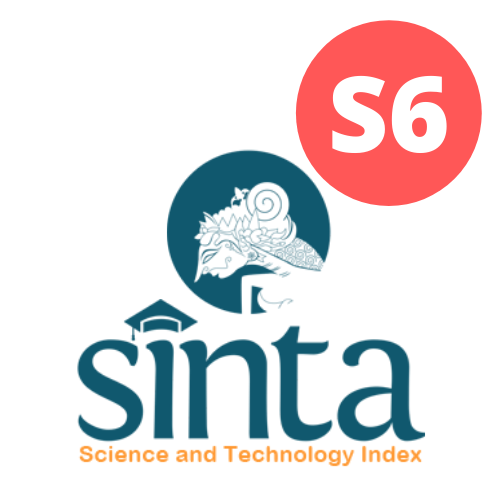Hubungan Pengetahuan End Of Life Care Dengan Sikap Petugas Ambulans Pada Pasien Paliatif
Abstract
End-of-life is an approach to improve the life quality of palliative patients by relieving their pain and providing physical, psychosocial, and spiritual support. Of 68 thousand cases in Indonesia, a percentage of 2.1% cases received end-of-life care in the pre-hospital area. In these cases, most ambulance officers were lack of knowledge to provide end-of-life care. One of the indicators was the importance of a positive attitude. In this care, excellent knowledge leads to excellent attitudes for palliative patients. This research determined the correlation between end-of-life care of ambulance officers' attitudes toward palliative patients. This cross-sectional approach research took 69 respondents as the sample with total sampling. The researcher used the Palliative Care Quiz for Nursing, PCQN-I, to measure the end-of-life care levels. Then, the researcher used Frommelt's Attitude toward Care of the Dying, FATCOD scale, to measure the attitudes of the officers. The statistic test used the Gamma test. The obtained p-value of 0.032, is lower than 0.05. The result found a significant correlation between end-of-life care knowledge and the ambulance officers' attitudes toward palliative patients with a correlation coefficient of 0.487. The value indicated a positive and moderate correlation. The research concluded the significant correlation between end-of-life care knowledge and the ambulance officers' attitudes toward palliative patients. The researcher suggested the health care providers facilitate the ambulance officers with some training and seminar. Thus, they could improve the end-of-life quality of palliative patients.










